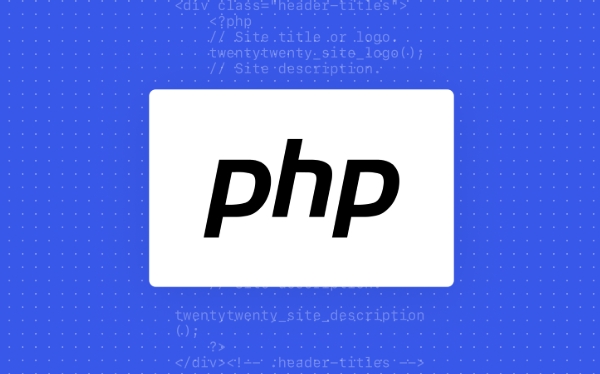To improve the performance of PHP functions, it is necessary to reduce resource consumption, speed up execution and ensure scalability. 1. Reduce function calls in loops, and the results should be calculated and stored in advance; 2. Priority is given to using built-in functions, such as array_map, in_array, etc., because they are more efficient and readable; 3. Avoid redundant calculations, store the results of expensive operations, and use cache to reduce duplicate database queries; 4. Optimize function parameters and return values, pass big data by reference, return as soon as possible, and reduce unnecessary output; 5. Use tools such as Xdebug or Blackfire for performance analysis and benchmarking to identify bottlenecks and optimize key functions. These practices jointly improve overall application efficiency.

Improving the performance of your PHP functions isn't just about making code run faster — it's about writing smarter, cleaner, and more efficient code. The goal is to reduce resource usage, speed up execution time, and ensure scalability, especially under heavy loads. Here are a few practical ways to make your PHP functions more efficient.

1. Minimize Function Calls Inside Loops
One of the most common performance pitfalls is placing function calls inside loops unnecessarily. Every function call comes with overhead, and when repeated hundreds or thousands of times inside a loop, it adds up.
For example, if you're using count() inside a for loop condition like this:

for ($i = 0; $i < count($array); $i ) {
// do something
} You're calling count() on every iteration. Instead, calculate it once before the loop starts:
$length = count($array);
for ($i = 0; $i < $length; $i ) {
// do something
}This small change can noticeably improve performance, especially with large arrays.

2. Use Built-in PHP Functions instead of Custom Code
PHP has a rich set of built-in functions that are optimized in C, making them much faster than equivalent PHP code you might write yourself.
For example:
- Use
array_map()orarray_filter()instead of manually looping through arrays for transformations or filtering. - Use
in_array()instead of writing a custom loop to check for values. - Use
strtotime()orDateTimeclasses for date manipulations instead of parsing dates manually.
These functions are not only faster but also more readable and less error-prone.
3. Avoid Unnecessary Computations and Redundant Logic
This one is more about good coding habits than specific PHP tricks. If a function is doing something more than once or computing values that don't change, it's wasting time.
Some common practices to avoid:
- Recalculating static values inside functions that are called repeatedly.
- Using expensive operations like regex or database calls when a simple string comparison would suffice.
- Fetching data from a database multiple times when you can cache or reuse the result.
Instead:
- Store results of expensive operations in variables.
- Use caching (like APC or OPcache) for function results that don't change often.
- Think about function scope — if a value can be precomputed or passed in, do it.
4. Optimize Function Arguments and Return Values
How you structure your function inputs and outputs can also impact performance:
- Pass large data structures by reference when appropriate using
&, especially if you're modifying them inside the function. - Return early when possible — if a function can exit early based on a condition, it avoids unnecessary processing.
- Avoid returning large arrays or objects unless absolutely needed. Consider returning only what's necessary.
Example:
function findUser($id) {
if ($id <= 0) return null;
// proceed with database query only if needed
}This avoids unequissary database calls when the input is invalid.
5. Profile and Benchmark Your Functions
You can't optimize what you don't measure. Use profiling tools like Xdebug or Blackfire to identify slow functions or bottlenecks.
Some quick tips:
- Benchmark different versions of a function to see which is faster.
- Watch out for memory usage — some functions might be fast but memory-hungry.
- Look at execution time per function in your stack trace to find the real culprits.
Most of these improvements are small individually, but they add up quickly in real applications. The key is to write clean, intentional code and avoid doing extra work where it's not needed.
Basically that's it.
The above is the detailed content of How can you improve the performance of your PHP functions?. For more information, please follow other related articles on the PHP Chinese website!

Hot AI Tools

Undress AI Tool
Undress images for free

Undresser.AI Undress
AI-powered app for creating realistic nude photos

AI Clothes Remover
Online AI tool for removing clothes from photos.

Clothoff.io
AI clothes remover

Video Face Swap
Swap faces in any video effortlessly with our completely free AI face swap tool!

Hot Article

Hot Tools

Notepad++7.3.1
Easy-to-use and free code editor

SublimeText3 Chinese version
Chinese version, very easy to use

Zend Studio 13.0.1
Powerful PHP integrated development environment

Dreamweaver CS6
Visual web development tools

SublimeText3 Mac version
God-level code editing software (SublimeText3)
 PHP Variable Scope Explained
Jul 17, 2025 am 04:16 AM
PHP Variable Scope Explained
Jul 17, 2025 am 04:16 AM
Common problems and solutions for PHP variable scope include: 1. The global variable cannot be accessed within the function, and it needs to be passed in using the global keyword or parameter; 2. The static variable is declared with static, and it is only initialized once and the value is maintained between multiple calls; 3. Hyperglobal variables such as $_GET and $_POST can be used directly in any scope, but you need to pay attention to safe filtering; 4. Anonymous functions need to introduce parent scope variables through the use keyword, and when modifying external variables, you need to pass a reference. Mastering these rules can help avoid errors and improve code stability.
 How to handle File Uploads securely in PHP?
Jul 08, 2025 am 02:37 AM
How to handle File Uploads securely in PHP?
Jul 08, 2025 am 02:37 AM
To safely handle PHP file uploads, you need to verify the source and type, control the file name and path, set server restrictions, and process media files twice. 1. Verify the upload source to prevent CSRF through token and detect the real MIME type through finfo_file using whitelist control; 2. Rename the file to a random string and determine the extension to store it in a non-Web directory according to the detection type; 3. PHP configuration limits the upload size and temporary directory Nginx/Apache prohibits access to the upload directory; 4. The GD library resaves the pictures to clear potential malicious data.
 Commenting Out Code in PHP
Jul 18, 2025 am 04:57 AM
Commenting Out Code in PHP
Jul 18, 2025 am 04:57 AM
There are three common methods for PHP comment code: 1. Use // or # to block one line of code, and it is recommended to use //; 2. Use /.../ to wrap code blocks with multiple lines, which cannot be nested but can be crossed; 3. Combination skills comments such as using /if(){}/ to control logic blocks, or to improve efficiency with editor shortcut keys, you should pay attention to closing symbols and avoid nesting when using them.
 How Do Generators Work in PHP?
Jul 11, 2025 am 03:12 AM
How Do Generators Work in PHP?
Jul 11, 2025 am 03:12 AM
AgeneratorinPHPisamemory-efficientwaytoiterateoverlargedatasetsbyyieldingvaluesoneatatimeinsteadofreturningthemallatonce.1.Generatorsusetheyieldkeywordtoproducevaluesondemand,reducingmemoryusage.2.Theyareusefulforhandlingbigloops,readinglargefiles,or
 Tips for Writing PHP Comments
Jul 18, 2025 am 04:51 AM
Tips for Writing PHP Comments
Jul 18, 2025 am 04:51 AM
The key to writing PHP comments is to clarify the purpose and specifications. Comments should explain "why" rather than "what was done", avoiding redundancy or too simplicity. 1. Use a unified format, such as docblock (/*/) for class and method descriptions to improve readability and tool compatibility; 2. Emphasize the reasons behind the logic, such as why JS jumps need to be output manually; 3. Add an overview description before complex code, describe the process in steps, and help understand the overall idea; 4. Use TODO and FIXME rationally to mark to-do items and problems to facilitate subsequent tracking and collaboration. Good annotations can reduce communication costs and improve code maintenance efficiency.
 Quick PHP Installation Tutorial
Jul 18, 2025 am 04:52 AM
Quick PHP Installation Tutorial
Jul 18, 2025 am 04:52 AM
ToinstallPHPquickly,useXAMPPonWindowsorHomebrewonmacOS.1.OnWindows,downloadandinstallXAMPP,selectcomponents,startApache,andplacefilesinhtdocs.2.Alternatively,manuallyinstallPHPfromphp.netandsetupaserverlikeApache.3.OnmacOS,installHomebrew,thenrun'bre
 How to access a character in a string by index in PHP
Jul 12, 2025 am 03:15 AM
How to access a character in a string by index in PHP
Jul 12, 2025 am 03:15 AM
In PHP, you can use square brackets or curly braces to obtain string specific index characters, but square brackets are recommended; the index starts from 0, and the access outside the range returns a null value and cannot be assigned a value; mb_substr is required to handle multi-byte characters. For example: $str="hello";echo$str[0]; output h; and Chinese characters such as mb_substr($str,1,1) need to obtain the correct result; in actual applications, the length of the string should be checked before looping, dynamic strings need to be verified for validity, and multilingual projects recommend using multi-byte security functions uniformly.
 Learning PHP: A Beginner's Guide
Jul 18, 2025 am 04:54 AM
Learning PHP: A Beginner's Guide
Jul 18, 2025 am 04:54 AM
TolearnPHPeffectively,startbysettingupalocalserverenvironmentusingtoolslikeXAMPPandacodeeditorlikeVSCode.1)InstallXAMPPforApache,MySQL,andPHP.2)Useacodeeditorforsyntaxsupport.3)TestyoursetupwithasimplePHPfile.Next,learnPHPbasicsincludingvariables,ech






